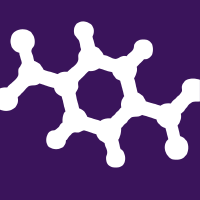Topic Editors

Polymer Gels for Oil Drilling and Enhanced Recovery
Topic Information
Dear Colleagues,
This Topics is devoted to the study of organic and inorganic polymer gels for oil- and gas-field applications, with the overarching goals of improving drilling efficiency and enhancing oil recovery. Contributions are invited on, but not limited to, innovative polymer gel synthesis, mathematical simulation and experimental assessment of polymer gel performance, and field-oriented applications in drilling and improved/enhanced oil recovery.
Polymer gels are elastomers with a three-dimensional (3D) network structure that is composed of polymers and cross-linkers as the main agents, along with other additives. They have been widely used in various aspects of oil–gas drilling and production engineering, such as drilling fluid, lost circulation control, fracturing, acidizing, conformance control, water shutoff, and enhanced oil recovery.
Polymer gels in oil–gas reservoirs are often subjected to high temperatures and salinity, and excessive temperatures and salinity can destroy the structural integrity of the polymer chains, resulting in a substantial decrease in stability. Therefore, maintaining good properties of polymer gels under high-temperature and high-salinity conditions is extremely difficult. So, many efforts should be performed to synthesize novel polymer gels, evaluate the physical and chemical properties of polymer gels in high-temperature and high-salinity conditions, and investigate the application effects of polymer gels in the drilling and enhanced oil recovery processes in the lab.
We look forward to your innovative research on organic or inorganic polymer gels aimed at advancing drilling efficiency and oil recovery.
Dr. Jingbin Yang
Prof. Dr. Yingrui Bai
Dr. Bauyrzhan Sarsenbekuly
Topic Editors
Keywords
- polymer gel synthesis
- polymer gel evaluation
- polymer gel drilling fluids
- polymer gel plugging
- polymer gel fracturing fluid
- polymer gel acid
- polymer gel conformance control
- polymer gel displacement
- polymer gel application
Participating Journals
| Journal Name | Impact Factor | CiteScore | Launched Year | First Decision (median) | APC | |
|---|---|---|---|---|---|---|

Applied Sciences
|
2.5 | 5.5 | 2011 | 19.8 Days | CHF 2400 | Submit |

ChemEngineering
|
3.4 | 4.9 | 2017 | 29.6 Days | CHF 1600 | Submit |

Energies
|
3.2 | 7.3 | 2008 | 16.2 Days | CHF 2600 | Submit |

Gels
|
5.3 | 7.6 | 2015 | 12.5 Days | CHF 2100 | Submit |

Processes
|
2.8 | 5.5 | 2013 | 16 Days | CHF 2400 | Submit |

Polymers
|
4.9 | 9.7 | 2009 | 14 Days | CHF 2700 | Submit |

Preprints.org is a multidisciplinary platform offering a preprint service designed to facilitate the early sharing of your research. It supports and empowers your research journey from the very beginning.
MDPI Topics is collaborating with Preprints.org and has established a direct connection between MDPI journals and the platform. Authors are encouraged to take advantage of this opportunity by posting their preprints at Preprints.org prior to publication:
- Share your research immediately: disseminate your ideas prior to publication and establish priority for your work.
- Safeguard your intellectual contribution: Protect your ideas with a time-stamped preprint that serves as proof of your research timeline.
- Boost visibility and impact: Increase the reach and influence of your research by making it accessible to a global audience.
- Gain early feedback: Receive valuable input and insights from peers before submitting to a journal.
- Ensure broad indexing: Web of Science (Preprint Citation Index), Google Scholar, Crossref, SHARE, PrePubMed, Scilit and Europe PMC.



